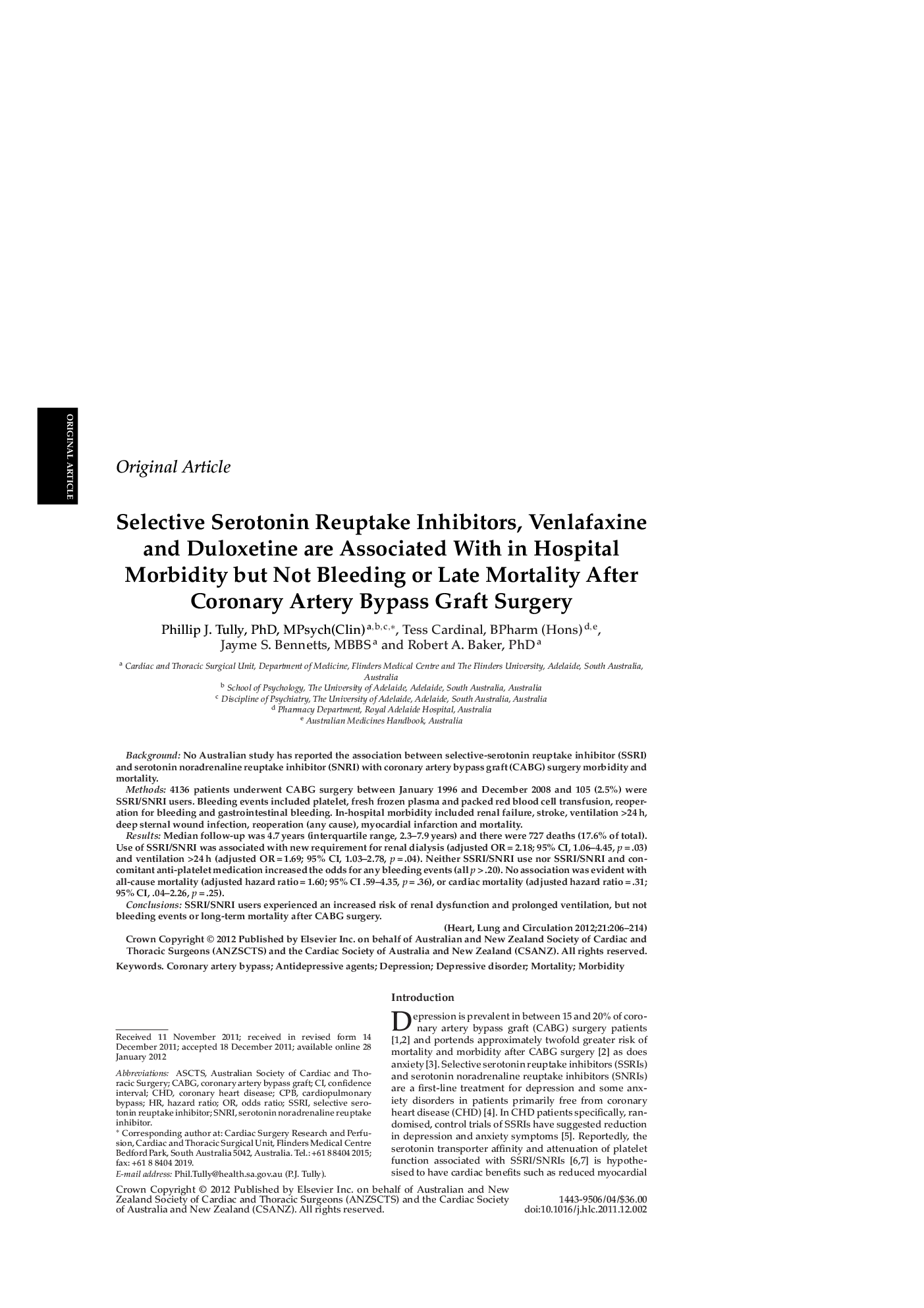| Article ID | Journal | Published Year | Pages | File Type |
|---|---|---|---|---|
| 2917891 | Heart, Lung and Circulation | 2012 | 9 Pages |
BackgroundNo Australian study has reported the association between selective-serotonin reuptake inhibitor (SSRI) and serotonin noradrenaline reuptake inhibitor (SNRI) with coronary artery bypass graft (CABG) surgery morbidity and mortality.Methods4136 patients underwent CABG surgery between January 1996 and December 2008 and 105 (2.5%) were SSRI/SNRI users. Bleeding events included platelet, fresh frozen plasma and packed red blood cell transfusion, reoperation for bleeding and gastrointestinal bleeding. In-hospital morbidity included renal failure, stroke, ventilation >24 h, deep sternal wound infection, reoperation (any cause), myocardial infarction and mortality.ResultsMedian follow-up was 4.7 years (interquartile range, 2.3–7.9 years) and there were 727 deaths (17.6% of total). Use of SSRI/SNRI was associated with new requirement for renal dialysis (adjusted OR = 2.18; 95% CI, 1.06–4.45, p = .03) and ventilation >24 h (adjusted OR = 1.69; 95% CI, 1.03–2.78, p = .04). Neither SSRI/SNRI use nor SSRI/SNRI and concomitant anti-platelet medication increased the odds for any bleeding events (all p > .20). No association was evident with all-cause mortality (adjusted hazard ratio = 1.60; 95% CI .59–4.35, p = .36), or cardiac mortality (adjusted hazard ratio = .31; 95% CI, .04–2.26, p = .25).ConclusionsSSRI/SNRI users experienced an increased risk of renal dysfunction and prolonged ventilation, but not bleeding events or long-term mortality after CABG surgery.
